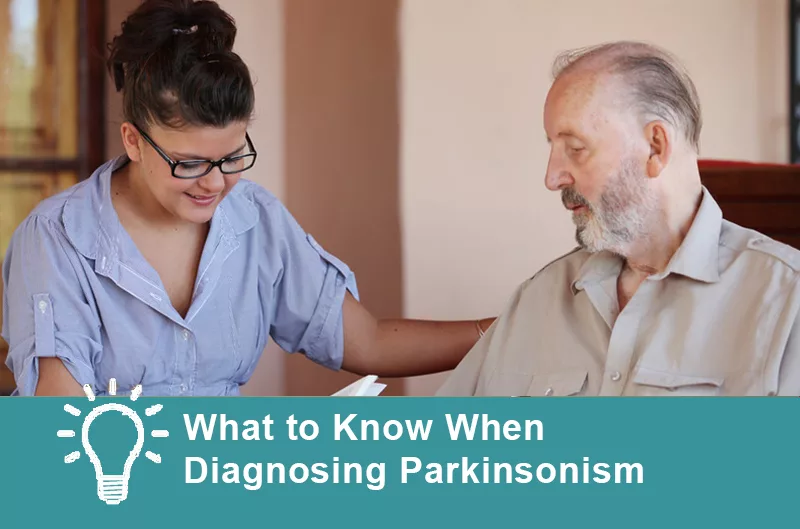In addition to antipsychotics, parkinsonism symptoms can also develop through the use of non-psychiatric medicines, particularly metoclopramide (Reglan), an anti-nausea medicine. Neurologist David M. Kaufman, MD, of Montefiore Medical Center, Bronx, NY. Dr. Kaufman offered the following information in an Expert Q&A from The Carlat Psychiatry Report:
What other disorders might cause parkinsonism?
In addition to parkinsonism being related to antipsychotics and other medications, psychiatrists need to consider the possibility that parkinsonism can be a manifestation of neurologic illnesses, including Lewy Body Dementia, Wilson disease, drug abuse, or Huntington disease. These particular illnesses are especially important because they cause mood and thought disorders, as well as parkinsonism, and thus a patient developing one of them may see a psychiatrist before any other specialist.
How do we determine whether parkinsonism is due to the use of antipsychotics or Parkinson disease?
It could be both, especially in the case in older adults. If older patients have been receiving antipsychotics and develop parkinsonism, a psychiatrist might consider the possibility that these patients may have been developing idiopathic Parkinson disease and that the psychiatric symptoms may have been related. It is not always easy to tell the difference between the disease and its adverse effects. The first thing to do, if possible, is to stop the antipsychotic agent and wait 3 weeks to 3 months to see if the symptoms resolve.
How should we examine patients who appear to have parkinsonism?
To start, observe whether the patient has reduced facial and limb expressions and gestures. For example, they may show decreased smiling and decreased affect. They will not gesture with their hands. They will also characteristically have fewer eye blinks and tend to stare, which neurologists call a “reptilian stare.” In most cases, patients with parkinsonism will have a tremor of one or both hands. If it is unilateral or asymmetric, a resting tremor suggests idiopathic Parkinson disease, but if it is symmetric, we really cannot say whether it is idiopathic or medication-induced.
After we make those observations, what should we do next?
Neurologists rotate the hand around the wrist and see if there is cogwheel resistance. Both wrists need to be tested. In individuals who have a tremor on one side, that wrist ought to have rigidity, and the other one will not. Another maneuver is the so-called “pull test.” With the patient standing, the physician stands behind, puts hands on the patient’s shoulders, and says, “At the count of three, I’m going to pull you back a little.” During this, a normal healthy patient will take a step back or bend the shoulders backwards to keep their balance when pulled back. In contrast, someone with Parkinson disease will either take many steps backwards (“retropulsion”), or just topple over like a statue (“falling en bloc”). Another simple thing we do is watch people walk while seeing if they have normal arm swing. A lack of normal swinging on one or both sides is consistent with parkinsonism.
Subscribers to The Carlat Psychiatry Report can read the full Q&A here. Not a subscriber? Join here.
What other disorders might cause parkinsonism?
In addition to parkinsonism being related to antipsychotics and other medications, psychiatrists need to consider the possibility that parkinsonism can be a manifestation of neurologic illnesses, including Lewy Body Dementia, Wilson disease, drug abuse, or Huntington disease. These particular illnesses are especially important because they cause mood and thought disorders, as well as parkinsonism, and thus a patient developing one of them may see a psychiatrist before any other specialist.
How do we determine whether parkinsonism is due to the use of antipsychotics or Parkinson disease?
It could be both, especially in the case in older adults. If older patients have been receiving antipsychotics and develop parkinsonism, a psychiatrist might consider the possibility that these patients may have been developing idiopathic Parkinson disease and that the psychiatric symptoms may have been related. It is not always easy to tell the difference between the disease and its adverse effects. The first thing to do, if possible, is to stop the antipsychotic agent and wait 3 weeks to 3 months to see if the symptoms resolve.
How should we examine patients who appear to have parkinsonism?
To start, observe whether the patient has reduced facial and limb expressions and gestures. For example, they may show decreased smiling and decreased affect. They will not gesture with their hands. They will also characteristically have fewer eye blinks and tend to stare, which neurologists call a “reptilian stare.” In most cases, patients with parkinsonism will have a tremor of one or both hands. If it is unilateral or asymmetric, a resting tremor suggests idiopathic Parkinson disease, but if it is symmetric, we really cannot say whether it is idiopathic or medication-induced.
After we make those observations, what should we do next?
Neurologists rotate the hand around the wrist and see if there is cogwheel resistance. Both wrists need to be tested. In individuals who have a tremor on one side, that wrist ought to have rigidity, and the other one will not. Another maneuver is the so-called “pull test.” With the patient standing, the physician stands behind, puts hands on the patient’s shoulders, and says, “At the count of three, I’m going to pull you back a little.” During this, a normal healthy patient will take a step back or bend the shoulders backwards to keep their balance when pulled back. In contrast, someone with Parkinson disease will either take many steps backwards (“retropulsion”), or just topple over like a statue (“falling en bloc”). Another simple thing we do is watch people walk while seeing if they have normal arm swing. A lack of normal swinging on one or both sides is consistent with parkinsonism.
Subscribers to The Carlat Psychiatry Report can read the full Q&A here. Not a subscriber? Join here.


_-The-Breakthrough-Antipsychotic-That-Could-Change-Everything.webp?t=1729528747)



